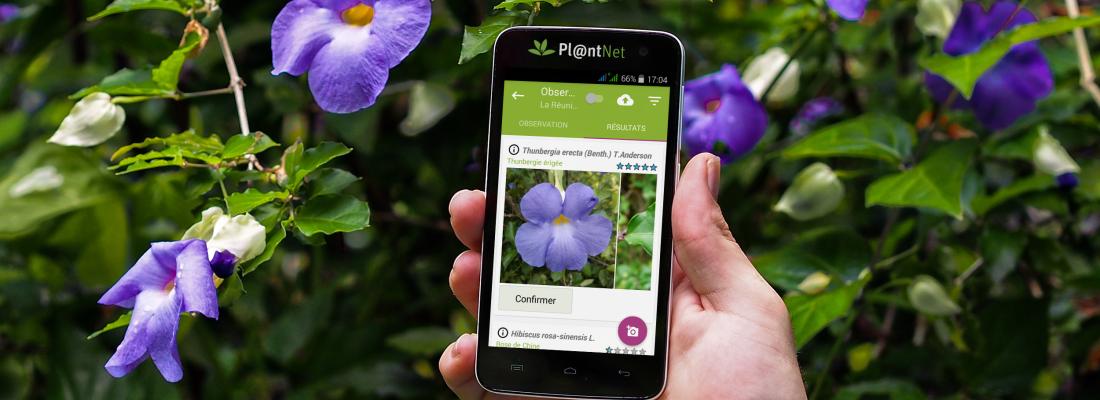Biodiversity Reading time 3 min
Pl@ntNet is celebrating its 10th anniversary: securing its long-term future through the creation of an open consortium
Published on 26 February 2020

Pl@ntNet was launched in 2009 with the aid of the Agropolis Fondation. It is a mobile and online participatory science platform which aims to facilitate the collection, exchange and accessibility of botanical data using the latest machine learning technology. Besides the mobile app, Pl@ntNet has given rise to some of the largest plant-related networks and datasets in the world.
A consortium to secure the long-term future of Pl@ntNet
Some ten years after the launch of the platform, the founding members (CIRAD, INRAE, INRIA and IRD) have set up a consortium to secure its long-term future. The consortium, run by INRIA and affiliated with the Agropolis Fondation, is looking for new members, for example scientific, educational, not-for-profit and industry partners. Several membership categories exist, with involvement in the platform varying depending on the annual subscription amount selected. New members will be able to take part in the governance of Pl@ntNet and have their say in defining its development priorities, thereby enabling them to become key stakeholders in characterizing plant biodiversity.
Pl@ntNet, the leading app on plants
Pl@ntNet is now used by millions of professionals and amateurs around the world in a wide variety of fields, including research, education, agronomy, ecotourism, and business. The tens of millions of observations collected represent a mine of new data whose analysis can improve knowledge of the plant world and aid in preserving agricultural biodiversity. Indeed, the global changes that we are facing make it more necessary than ever to improve our understanding of our environment so that we can anticipate how it will change and protect it.
